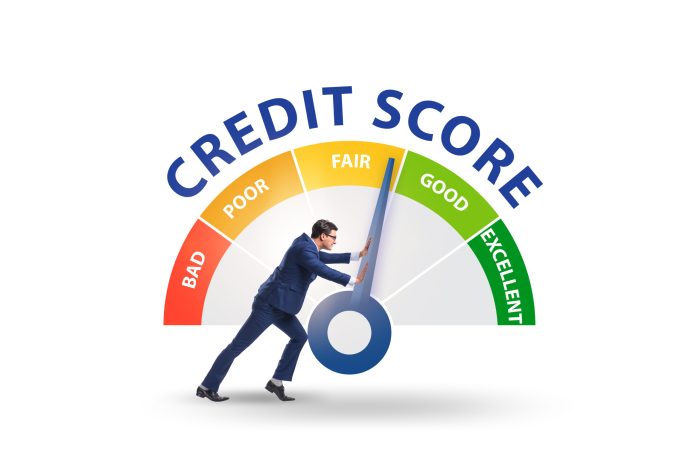Credit Score Improvement sets the stage for enhancing your financial profile, diving into strategies and tips that can elevate your creditworthiness. Get ready to unlock the secrets of boosting your credit score like a pro!
Understanding Credit Scores

A credit score is a three-digit number that represents an individual’s creditworthiness. It is calculated based on various factors in a person’s credit report.
Having a good credit score is crucial as it determines an individual’s ability to borrow money, the interest rates they will receive, and even their chances of getting approved for a loan or credit card.
Factors Impacting Credit Scores, Credit Score Improvement
- Payment History: Timely payments can positively impact a credit score.
- Credit Utilization: Keeping credit card balances low can have a positive effect.
- Length of Credit History: A longer credit history can be beneficial.
- Credit Mix: Having a variety of credit accounts can be advantageous.
- New Credit: Opening multiple new accounts in a short period can lower a credit score.
Credit Score Ranges
Credit scores typically range from 300 to 850, with the following categories:
| Score Range | Rating |
|---|---|
| 300-579 | Very Poor |
| 580-669 | Fair |
| 670-739 | Good |
| 740-799 | Very Good |
| 800-850 | Exceptional |
Ways to Improve Credit Score: Credit Score Improvement
Improving your credit score is crucial for better financial opportunities. Here are some strategies to boost your credit score:
Pay Bills on Time
One of the most important factors in determining your credit score is your payment history. Make sure to pay all your bills on time to avoid negative marks on your credit report.
Reduce Credit Card Balances
High credit card balances can negatively impact your credit score. Try to keep your credit card balances low relative to your credit limit to improve your score.
Check Credit Reports for Errors
Regularly check your credit reports for any errors or inaccuracies that could be dragging down your score. If you find any issues, dispute them with the credit bureaus to have them corrected.
Building Credit History

Building a positive credit history is crucial for financial stability and future opportunities. Lenders use credit history to assess creditworthiness, impacting loan approvals, interest rates, and more.
Role of Credit Utilization
Credit utilization plays a significant role in credit score improvement. It refers to the ratio of credit used to credit available. Keeping credit utilization low, ideally below 30%, can positively impact credit scores.
- Avoid maxing out credit cards.
- Regularly monitor and pay off credit card balances.
- Consider increasing credit limits to lower utilization ratio.
Good Credit-Building Practices
Establishing a positive credit history involves timely payments, diverse credit accounts, and responsible credit management.
- Pay bills on time to show reliability.
- Maintain a healthy mix of credit types (credit cards, loans, etc.).
- Regularly check credit reports for errors and fraud.
Impact of Different Credit Accounts
Various credit accounts can impact credit scores differently. Installment loans, such as mortgages, show ability to manage long-term debt, while credit cards demonstrate credit utilization and payment history.
Each credit account type contributes to the overall credit profile, affecting credit scores uniquely.
Monitoring Credit Score
Regularly monitoring your credit score is crucial to staying on top of your financial health. It allows you to track changes, detect errors, and prevent potential identity theft.
Tools and Services for Monitoring Credit Scores
- Utilize free credit monitoring services provided by credit bureaus like Experian, Equifax, and TransUnion.
- Consider signing up for credit monitoring apps or websites such as Credit Karma, Credit Sesame, or myFICO.
- Set up alerts to notify you of any changes to your credit report, such as new accounts opened or late payments reported.
Protecting and Maintaining a Good Credit Score
- Pay your bills on time to avoid negative marks on your credit report.
- Keep your credit utilization low by not maxing out your credit cards.
- Avoid opening multiple new credit accounts in a short period, as it can lower your credit score.
- Regularly review your credit report for errors and dispute any inaccuracies promptly.
Frequency of Checking Credit Score
It is recommended to check your credit score at least once a month to monitor any changes or discrepancies. Additionally, you should review your full credit report from each bureau at least once a year to ensure accuracy and address any issues promptly.

